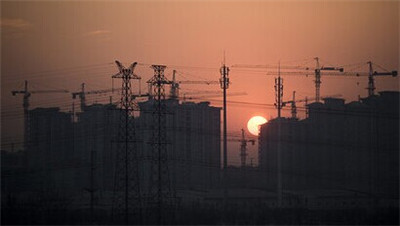(单词翻译:单击)
It's not just exports that are troubling the Chinese economy.
中国经济遭遇的麻烦不仅仅来自出口。
New data show industrial production slowed in July to a year-on-year pace of 6 per cent, its weakest since April and down from 6.8 per cent in June (which was its best reading since December). Economists had anticipated a pace of 6.6 per cent.
新公布的数据显示,7月份中国规模以上工业增加值同比增长6%,这是今年4月以来的最弱增长,也低于6月份6.8%的增幅(该增幅是去年12月以来的最大增幅)。经济学家原本预计7月份会增长6.6%。

Retail sales grew at a 10.5 per cent pace, missing forecasts and falling from the 10.6 per cent pace in June.
社会消费品零售总额同比增长10.5%,也没有达到预期,并且低于6月份的10.6%。
Also, fixed-asset investment—which includes spending on infrastructure, factory equipment and property construction—weakened back towards the 14-year low seen two months prior. The year-to-date pace fell from 11.4 per cent in May to 11.2 per cent last month, missing forecasts that it would rise to 11.5 per cent.
此外,中国固定资产投资(包含基础设施、工厂设备和房地产建设方面的开支)同比增幅从5月份的11.4%跌至上个月的11.2%,而预期值是11.5%。
The figures offer more evidence of a renewed slowdown in China's economy. An earlier reported slowdown in exports was widely cited as a key reason persuading the People's Bank of China to change the way it values the renminbi, resulting in a 4 per cent depreciation in the currency this week. The PBoC has said it acted to give more voice to markets.
这些数据为中国经济新一轮放缓提供了更多证据。此前有关出口放缓的报道,被广泛视为促使中国央行改变人民币汇率中间价形成机制的重要原因。新机制导致人民币汇率在本周贬值了4%。中国央行表示,它这么做是为了让市场发挥更大作用。


